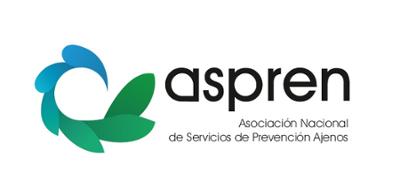

Ernesto Rubio (ASPREN): It is necessary to generate a culture of prevention from the earliest stages of education
According to Ernesto Rubio, manager of ASPREN, the National Association of External Prevention Services, it is essential to generate a culture of prevention from the earliest stages of education. He states that for this integration to be real and effective, external prevention services are also an essential tool, as they assess their effectiveness by detecting failures in the application of preventive measures and analysing the causes that have led to this situation.
How do you assess the current situation of occupational risk prevention in Spain?
The current situation of occupational risk prevention in Spain is complex and requires that we continue to make progress, fundamentally by increasing the culture of prevention in all areas and adapting the regulations to the real needs of our productive fabric. It is understood that it is necessary to commit to the integration of prevention in companies and, to this end, it is essential to generate a culture of prevention from the earliest stages of education, as these generations will be the future workers of our country. For this real and effective integration of preventive activity in companies, external prevention services are also an essential tool, insofar as they assess their effectiveness by detecting failures in the application of preventive measures and analysing the causes that have led to this situation.
What actions are needed to improve training in this area?
Training is a fundamental pillar for developing effective prevention, so it is necessary to focus on quality training. In this regard, it should be noted that external prevention services meet various quality standards, as they are accredited entities with highly qualified professionals and multi-sector experience.
Special mention should be made of the centres that currently provide basic level training, insofar as the regulations only state that "the minimum training... shall be accredited by means of certification of specific training in occupational risk prevention, issued by a prevention service or by a public or private entity with the capacity to develop specific training activities in this area", according to Article 25.3 of the RSP (Prevention Services Regulations).
In view of this reality, and in order to improve the quality of training, it is essential to establish minimum requirements so that these public or private entities, intended to provide and certify basic level training, can really offer minimum quality standards and are made up of trainers with an appropriate academic and professional profile. It is understood that they should be TSPRL (Técnico Superior en Prevención de Riesgos Laborales).
What role does lifelong learning play?
Indeed, another important aspect is continuous training and the constant updating of content, for which purpose innovative methodologies play a fundamental role, with the use of emerging technologies, gamification applied to the field of training or interactive simulators, among others, proving highly positive.
On the other hand, and as mentioned in the previous point, it is essential to develop a preventive culture from an early age, introducing and promoting occupational risk prevention concepts in the educational curricula at all stages of formal training.
However, in order to ensure the proper development of training, it is also essential to reduce the legal uncertainty that companies often face, as the regulations are not always sufficiently clear and homogeneous to determine what type of training should be developed and under what parameters.
Furthermore, in order to be able to verify the real effectiveness of the training, it is essential to evaluate it, thus ensuring that the training is effective and generates a clear return on investment. This constant verification will result in a continuous improvement of training, making it possible to correct possible deviations and guiding the implementation of programmes that quickly respond to new training demands.
What other challenges will the sector face in 2025?
In general terms, the sector will have to face the challenges presented by the modification of the Law on Occupational Risk Prevention (LPRL) and the Prevention Services Regulations (RSP), a regulatory framework that is expected to be modified in the coming months, and which is expected to be the result of an agreement between the social agents and the Government in the Social Dialogue Board set up for this purpose. These modifications must, in turn, be within the framework of the Spanish Strategy for Safety and Health at Work (EESST) 2023-2027, approved in March 2023, following consensus between the General State Administration, regional communities and social partners.
They will involve adapting the regulations to new forms of work, and demographic and climate change, incorporating the integration of age and generational diversity in preventive management, reinforcing the protection of workers against psychosocial risks and favouring the integration of prevention, among other things.
The SPAs, specialised entities with proven experience in advising and supporting companies and workers, both in the technical and health fields, will have to face the challenges arising from this new reality, in a globalised and changing environment, where, among other things, we are in a process of constant transformation of jobs and, consequently, of the risks associated with them.
What opportunities will advance a gender-sensitive culture of prevention?
It is understood that gender diversity is an opportunity to enrich prevention and make it more effective, taking into consideration the possible differences that may exist in terms of the risks to which workers are exposed, their physical and biological differences, the work environment, the work to be carried out, the perception of risk and, in short, the preventive measures to be implemented.
In this area, it is also essential to commit to inclusive training, designing training materials that use non-sexist language, that represent the different genders, and that promote a culture of equality and prevention for all. In short, we believe that work-life balance and co-responsibility should lead us to promote measures that have a positive impact on the health and well-being of both genders.
What other demands are still pending?
We believe that universal access to health surveillance for the entire working population is essential, and to this end, active policies must first be established by the competent administrations to resolve problems such as the lack of specialist health professionals (Company Medicine and Nursing), whose deficit is affecting the development of health activities by the SPAs.
It is also worth highlighting the value of specific medical check-ups, oriented towards occupational risks, as they constitute a valuable and essential preventive tool for the correct prevention and protection of health against occupational risks, as well as for the promotion of the health of workers, bringing important benefits for both the company and the worker.
Likewise, the prior completion of medical examinations can serve as a useful tool for carrying out early diagnoses of various pathologies: for many workers, these health check-ups often represent the only preventive healthcare activity they undergo, and on numerous occasions, they allow for the detection of injuries or prevalent conditions within the working population, thereby facilitating early detection of any condition requiring treatment.





